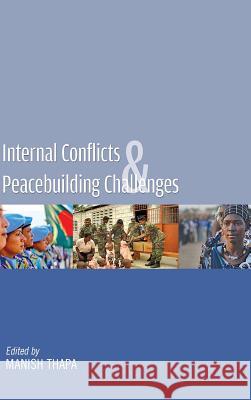Internal Conflicts & Peacebuilding Challenges » książka
Internal Conflicts & Peacebuilding Challenges
ISBN-13: 9789383649792 / Angielski / Twarda / 2015 / 268 str.
The end of the Cold War and fundamental changes taking places in international system has altered the nature of armed conflicts. Since the late 1980s, the main threat to regional and global peace has not come from major inter-state confrontations, but from another source: internal conflicts, conflicts occurring within the borders of states. These internal conflicts often involve ethnic and cultural tensions, religious and tribal rivalries, as well as domestic power struggles for governance. Internal conflicts reflect fundamental clashes between peoples of different ethnic groups, different cultures, and even different civilizations. Distorted images, excessive fear and distrust, fundamental divergences on political, economic and religious values, which are products of centuries, are all in play. Most of the time, the absence of a clear battlefield and the involvement of multiple parties with uneven force make these situations even more problematic. Therefore, internal conflicts are rather difficult to manage and resolve. This volume examines the challenges in post conflict peacebuilding efforts and the difficulties in building a sustainable peace in societies recently destabilized by internal armed conflicts. Various issues in post-conflict peace building efforts such as democratization, governance, reconciliation, DDR, security sector reforms, education, reconstruction etc. are analysed with case studies from Nepal, Sir Lanka, Cote d'Ivoire's, Sierra Leone, Nigeria, Philippines, Colombia, East Timor, Liberia and India."











